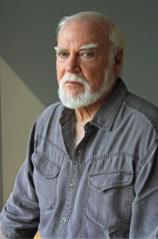About the Book
About the Book
Mating

Set in Botswana in the early 1980s, Mating is narrated by an American graduate student in anthropology who feels a compulsion to "tell everything," to record everything that happens to her. The result is a sprawling, complex, confessional narrative that explores the equally extraordinary inner lives and outer circumstances of its two main characters, the narrator and the man she falls in love with, Nelson Denoon. Denoon is a scourge and star academic, the author of the classic Development as the Death of Villages, who is now working on a utopian experiment: a solar-powered, egalitarian, matriarchal village deep in the Kalahari. When the narrator sets off alone across the desert to find Denoon and his highly secretive project in Tsau, she enters a world unlike any she has experienced before and finds a man more complicated and more intellectually challenging than any she has ever known.
While Mating is very much a love story, exploring the shifting nuances of love with a subtlety and insight seldom encountered in American fiction, it is also a novel of great intellectual sweep that seems to comment on everything. History and politics, psychology and religion, poetry and science, economic systems and the Tao Te Ching all come within the novel's capacious purview. And it is a book that asks, and then brilliantly explores, some profoundly important questions: how can we create a just society? What is the nature of a truly equal relationship? What is the relation between past and present, the personal and the political, and between reality and the narratives used to record and represent that reality?
Mating
- Publication Date: September 1, 1992
- Paperback: 496 pages
- Publisher: Vintage
- ISBN-10: 067973709X
- ISBN-13: 9780679737094



